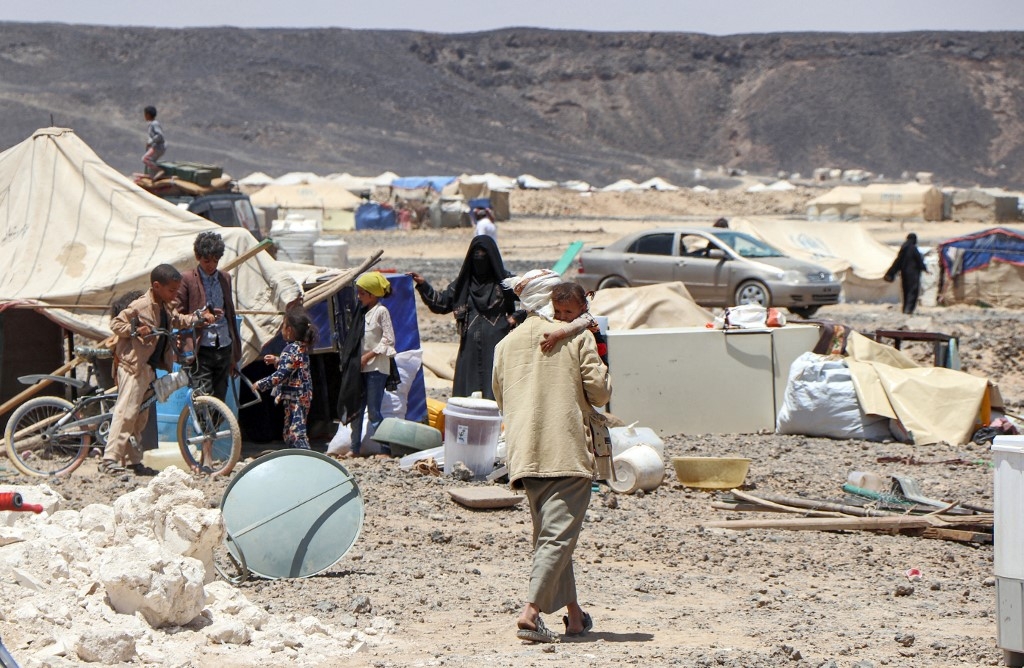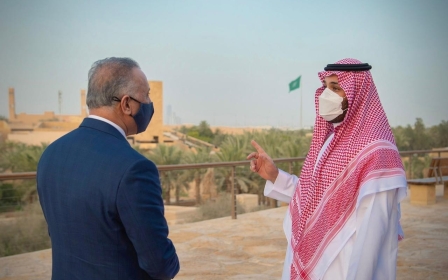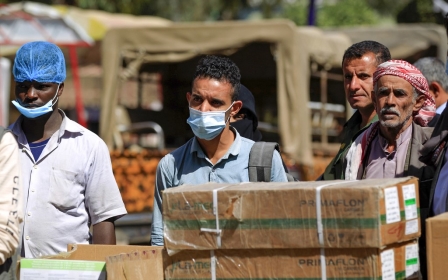US senators urge Biden administration to support new Yemen donor conference

A bipartisan group of US senators is pressing the Biden administration to support an additional donor conference this year on the humanitarian crisis in Yemen, after the first left a $2.5bn funding gap.
In a letter to Secretary of State Antony Blinken, the lawmakers asked the administration to push international donors to address the shortfall in assistance to alleviate the humanitarian crisis in Yemen.
The letter was signed by Democratic Senators Chris Murphy and Jeanne Shaheen, and Republican senators Todd Young and Jerry Moran.
"We urge you to support another donor conference that fills that funding shortfall, as doing so could mean the difference between life and death for millions of Yemenis," the senators wrote.
"Today, nearly 50,000 people in Yemen are living in famine-like conditions with 5 million more just a step away.
"Unlike in 2018, the international community has so far mostly failed to rise to the challenge and provide the robust funding needed to stave off this catastrophe."
The letter noted that the United Nations' $3.4bn appeal for Yemen in 2020 was only 50 percent funded, and its $4.2bn appeal was 87 percent funded in 2019.
In 2021, just 34 percent of the $3.85bn appeal has been fulfilled. The donor conference in March ended with countries only pledging $1.7bn, which UN Secretary-General Antonio Guterres called "disappointing".
Yemen blockade
The Saudi-led coalition began its bombing campaign against the Houthis in March 2015 after the rebels took over Sanaa and toppled the Riyadh-backed government of President Abd Rabbuh Mansour Hadi.
The UN calls Yemen the world's worst humanitarian crisis, while the war has killed more than 230,000 people, causing outbreaks of disease and pushing the impoverished country to the brink of famine.
Since taking office in January, President Joe Biden announced an end to US support for offensive operations in the Saudi-led war in Yemen. But analysts and lawmakers have noted it remains unclear exactly what can be deemed offensive in nature.
US lawmakers have also called for more action to ease the crisis, calling on the Biden administration to pressure Saudi Arabia into ending its blockade on Yemen, and opposing arms sales to Riyadh and the United Arab Emirates (UAE).
The UAE says it has withdrawn its troops from Yemen, but anti-war activists say Abu Dhabi remains involved in the conflict.
Last month, the US envoy for Yemen, Tim Lenderking - who previously played down the effects of the blockade - said Washington was working with Riyadh to ensure the flow of goods and humanitarian assistance to Yemen.
While Lenderking has previously insisted that food is arriving in the country through the UN Verification and Inspection Mechanism for Yemen (UNVIM), the World Food Programme has warned that fuel shortages are intensifying food insecurity in the war-torn country.
UNVIM data shows no fuel was allowed into the country in February, and only 38,309 tonnes were distributed in March, down from 164,660 tonnes last November - before Saudi Arabia started intensifying the siege.
Middle East Eye propose une couverture et une analyse indépendantes et incomparables du Moyen-Orient, de l’Afrique du Nord et d’autres régions du monde. Pour en savoir plus sur la reprise de ce contenu et les frais qui s’appliquent, veuillez remplir ce formulaire [en anglais]. Pour en savoir plus sur MEE, cliquez ici [en anglais].





